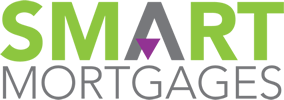As a mortgage advisor, we’ve noticed that certain questions come up time and time again from prospective homeowners. So, we’ve compiled the most common ones to help demystify the process.
From figuring out how much you can borrow under the Central Bank’s lending rules to understanding what documentation you’ll need, these frequently asked questions cover the essential information you need to start your home-buying journey.
1. What deposit do I need for a mortgage in Ireland?
- First-time buyers need a minimum 10% deposit
- Second/subsequent buyers need a minimum 10% deposit
- Help to Buy Scheme and the First Home Scheme can assist with deposit for new builds
2. How much can I borrow?
- Maximum 3.5 times gross annual income for second time buyers
- Maximum 4 times gross monthly income for first time buyers
- Banks consider both income and existing financial commitments
- Some professions may qualify for higher multiples
Note: Loan to income exceptions are possible, consult with a mortgage advisor for more information and advice
3. What documents do I need for an Irish mortgage application?
- 6 months of recent bank statements
- 3 months of payslips
- Valid photo ID and proof of address
- Savings statements showing deposit build-up
- 3 years’ Employment Details Summary (EDS).
4. How long does the mortgage process take?
- Approval in Principle (AIP): 1-2 weeks
- Full mortgage approval: 4-8 weeks after property found
- Drawdown: 4-6 weeks after loan offer
- Total process typically 3-6 months
*These are rough figures. The length of time a mortgage application takes depends on the specific circumstances of the applicant etc.
5. What affects my mortgage approval chances?
- Credit history
- Employment status and stability
- Saving history and ability (6 months’ proof of savings)
- Existing loans and financial commitments
- Age and years to retirement
- Type and location of property
6. How do I prove my deposit source?
- Regular savings statements
- Gift documentation if receiving family help
- Inheritance documentation
- Sale of assets proof
- Banks need to verify all deposit sources for anti-money laundering
7. What additional costs should I budget for?
- Stamp duty (1% up to €1m for residential properties)
- Solicitor fees (€1,500-€3,000 typically)
- Valuation fee (€150-€250)
- Surveyor fees if getting a structural survey
- House insurance and mortgage protection assurance
Read more in our Hidden Costs of Buying a Home article
8. Can I get a mortgage if self-employed?
- Yes, but typically need:
- 3 years of certified accounts
- Tax clearance certificate
- Revenue Form 11 returns
- More documentation than PAYE workers
9. What types of mortgages are available in Ireland?
- Fixed rate mortgages (various terms)
- Variable rate mortgages
- Split mortgages (part fixed, part variable)
- Green mortgages for energy-efficient homes
- First-time buyer specific products
10. What government schemes are available?
- Help to Buy (HTB) scheme for new builds
- First Home Scheme
- Local Authority Home Loan
- Rebuilding Ireland Home Loan
- Shared ownership schemes
Remember that every borrower’s situation is unique, and what works for one person may not work for another. It’s always advisable to speak with a qualified mortgage advisor who can provide personalised guidance based on your specific circumstances. Whether you’re just starting to save for your deposit or ready to submit your application, staying informed about the mortgage process will help you make confident decisions about what might be the biggest financial commitment of your life.
Recommended Further Reading
Hidden Costs of Buying a House
